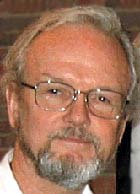Washington University professors John E. Heuser, Henry L. “Roddy” Roediger III and Norman J. Schofield have been elected as fellows in the American Academy of Arts and Sciences class of 2005.
Heuser, MD., is a professor of Cell Biology and Physiology in the School of Medicine; Roediger, Ph.D., is the James S. McDonnell Distinguished University Professor and Dean of Academic Planning in Arts & Sciences; and Schofield, Ph.D., is the William R. Taussig Professor of Political Economy in Arts & Sciences and director of the Center for Political Economy.
Heuser, Roediger and Schofield are among 213 men and women elected this year by the Academy, an organization formed in 1870 to cultivate the arts and sciences and to recognize leadership in scholarship, business, the arts, and public affairs.
“Washington University has a rich and long tradition of scholars who have been recognized nationally and globally for their contributions to science and the humanities,” Chancellor Mark S. Wrighton said. “Professors Heuser, Roediger and Schofield join an elite group honored by the American Academy of Arts and Sciences, and we are all proud of their accomplishments and grateful for their continued association with our community.”
The Academy’s current membership of over 4,500 includes more than 150 Nobel laureates and 54 Pulitzer Prize winners. Fellows are selected through a highly competitive process that recognizes individuals who have made preeminent contributions to their disciplines and to society at large.
The Academy will welcome this year’s new Fellows and Foreign Honorary Members at its annual induction ceremony on Oct. 8, at the Academy’s headquarters in Cambridge, Mass.

Heuser created quick-freeze deep-etch electron microscopy, a pioneering technique that lets biologists take detailed pictures of fleeting events inside living cells. For decades, Heuser has used this technique to capture details of the molecular mechanisms that underlie many basic biological activities, including nerve cell signal-transmission, muscle contraction, and most recently, the fusion of viruses with cells during the spread of infection.
He compares quick-freeze deep-etch electron microscopy to using a stroboscopic flash to freeze the action in a photograph.
“Like a strobe, it stops the biological event in midstream, freezing it in roughly one ten-thousandth of a second,” he said in 1996. To make it possible to image the frozen sample with an electron microscope, Heuser adds an ultra-thin film of metallic platinum that molds snugly against the sample’s frozen surface contours.
He and others in his lab have worked to make the equipment and procedures necessary for this process available to researchers around the world. Currently Heuser has patents pending on Washington University’s behalf for even more advanced versions of his quick-freezing machines.
Heuser graduated magna cum laude from Harvard Medical School in 1969 and joined the Washington University faculty as a professor of biophysics in 1980. He is currently associate editor of the Journal of Neurocytology and previously served as associate editor of the Journal of Cell Biology. His curriculum vitae lists over 200 scientific publications.

Roediger is internationally recognized for his research on human learning and memory, especially for studies exploring how knowledge is recovered from memory. He is author of three books, has edited four others, and has published about 170 articles and chapters.
He joined the university in 1996 and served as chair of the Department of Psychology in Arts & Sciences until 2004, when he was named dean of academic planning in Arts & Sciences. He earned his doctorate in psychology from Yale University in 1973 and taught many years at Purdue University, the University of Toronto and Rice University.
Roediger is past-president of the American Psychological Society, the leading organization of academic psychologists in the United States, and a former chair of the Society of Experimental Psychologists. Roediger has served as president of the Midwestern Psychological Association and chair of the Governing Board of the Psychonomic Society.
Roediger also has been elected a fellow of the American Association for the Advancement of Science, as well as three psychological organizations. A study in the mid-1990s by the Institute of Scientific Information showed that Roediger’s work for the 5-year period from 1990-1994 had the greatest impact of any researcher in the field of psychology. In 2003 the ISI named Roediger a “Highly Cited Researcher” in a new study.

Schofield, a member of the faculty here since 1986, is a professor of economics and political science, both in Arts & Sciences. His teaching and research interests include topics in the theory of social choice, comparative politics, constitutional political theory, political economy, international politics and economics.
A native of Scotland, Schofield holds doctoral degrees in government and in economics from Essex University; a Doctor of Letters from Liverpool University; and a Doctorat d’etat en sciences economiques from the University of Caen.
He has held academic positions at the California Institute of Technology and the universities of Essex, Manchester, Yale, Stanford, and Texas at Austin; and served as the Fulbright Distinguished Professor at Humboldt University in Berlin. Much of his research is supported by grants from the National Science Foundation.
His publications in democratic theory include articles in the Journal of Theoretical Politics (1995), the European Journal of Political Research (1993), Mathematical Computer Modeling (1992), the American Political Science Review (1988) and Social Choice and Welfare, on which he is a member of the editorial board.
He has written several books, including Multiparty Governments (with Michael Laver, in 1990), Social Choice and Democracy (1985), and most recently co-edited three volumes: Political Economy: Institutions, Information, and Representation (Cambridge University Press, 1993), Social Choice, Welfare and Ethics (Cambridge University Press), and Collective Decision Making (Kluwer, 1996). His most recent book is Mathematical Models in Economics and Social Choice, (Springer Verlag, 2003). He has two books forthcoming from Cambridge: Multiparty Democracy (with Itai Sened) and Constitutional Quandaries.